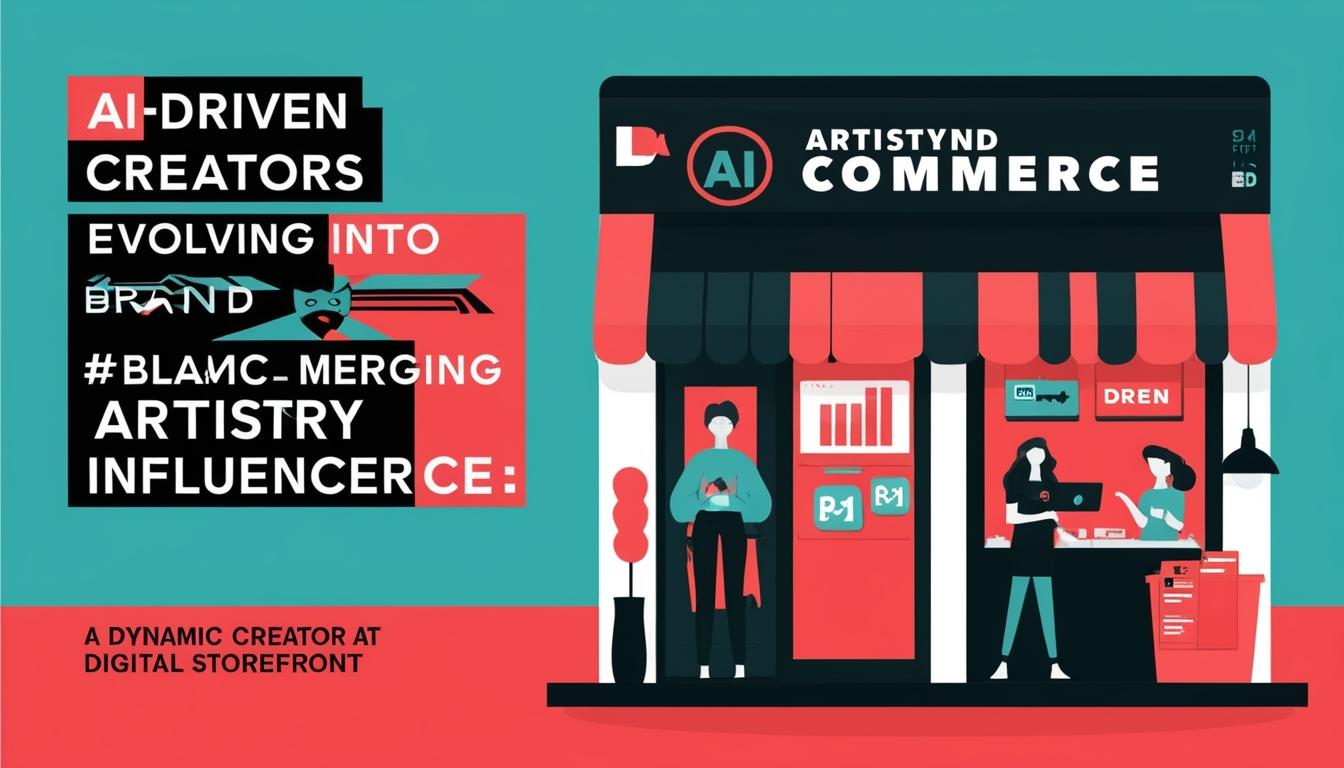The landscape of the creator economy is poised for notable transformation as it approaches 2025, primarily influenced by advancements in artificial intelligence (AI), a shift towards long-term brand partnerships, and the increasing embrace of long-form content. According to a series by Digiday, significant changes are anticipated as creators evolve beyond conventional influencer marketing towards a more integrated approach within this rapidly growing ecosystem.
The shift towards establishing enduring affiliations between brands and creators marks a key trend. As the influencer marketing sector continues to mature, there is a notable move away from one-off collaborations to long-term brand ambassador programs. Ed East, founder and group CEO of influencer agency Billion Dollar Boy, remarked, “The creator economy is entering a transformative phase,” indicating that the industry's evolution is marked by emerging business opportunities for creators. This includes launching personal brands, setting up storefronts, and even hiring talent agents as they expand their operations.
The influence of AI on the creator economy is becoming increasingly evident. Companies and creators are actively exploring generative AI and innovative products that could reshape their workflows and content production processes. Dave Snyder, partner and head of design at digital studio Siberia, expressed optimism about the role of AI, stating that by 2025, “more AI-created personas will quietly take over social platforms as they become indistinguishable from human creators.” This shift raises several ethical questions about authenticity and the potential spread of misinformation, as Snyder contrasted the significance of creators' voices against algorithms that shape cultural narratives.
In this changing dynamic, creators are increasingly positioning themselves as independent media companies. As they refine their brands and strategies, the role of traditional influencers is expanding to become more central to brand identity. Influencer marketing agency LV8's COO Gabby Gamad stated, “Influencers are no longer just ambassadors for a product — they are becoming integral to brand strategy.” Data indicates that 88% of creators are actively involved in creating their own products or services, while a substantial 93% of marketers plan to collaborate on co-created offerings.
Long-form content is experiencing a resurgence, with shifts in viewer habits fostering demand for longer narratives and episodic series. As creators engage in formats akin to podcasts or TV series, Neil Waller, co-founder of the creator agency Whalar Group, noted the evolving expectations of brands, explaining, “Next year feels like there’s going to be a gear change.” This evolution permits brands to support creators in a more structured manner rather than merely commissioning isolated projects. Short-form content is also adapting to a more narrative-driven structure, exemplifying a trend towards deeper engagement with audiences.
In contrast, uncertainties loom over TikTok’s status as a dominant player within the creator economy. The platform approaches a critical juncture, as discussions of either a sale or a ban in the U.S. sector gain traction. Despite the challenges, TikTok has undeniably influenced trends in short-form videos and social commerce, with creators increasingly diversifying their content across various platforms to mitigate potential impacts from a TikTok shutdown.
Regardless of TikTok's future, the trend towards social commerce is anticipated to continue growing, as more consumers engage with shopping through social media channels. Olivia McNaughten, senior director of product marketing and partnerships at influencer marketing platform Grin, affirmed that, “the entire buying journey now sits in consumers’ pockets.” However, a careful balance must be struck to avoid overwhelming users with commercial content, which could deter engagement.
In summary, the creator economy is on the brink of significant evolution driven primarily by AI innovation, extended partnerships with brands, and a shift towards long-form storytelling. The space is continuously adapting, reflecting a need for creators and companies to navigate new tools and platforms that influence consumer behaviours.
Source: Noah Wire Services
